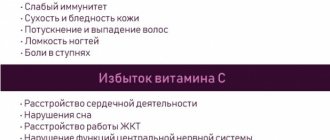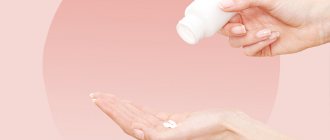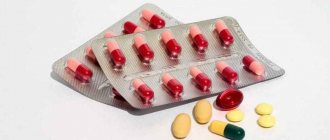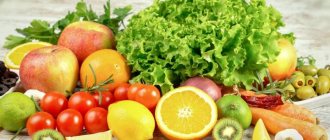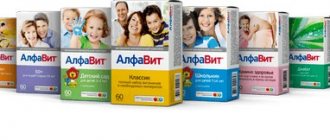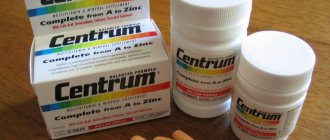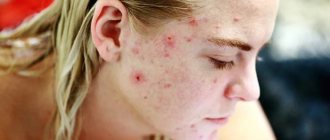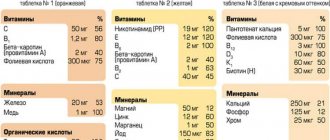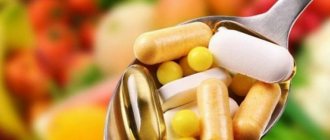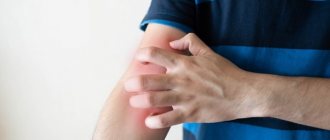Since the discovery of this organic compound, vitamin B2 has been called an important source of vitality and energy.
This vitamin is an important part of general metabolism and energy metabolism. In addition, this compound is involved in additional life support reactions of the human body. Without a regular intake of vitamin B2 into the internal environment, it is impossible to achieve good health. Despite the fact that a small amount of this vitamin can be synthesized in the lumen of the large intestine, this volume is not enough to meet the body’s needs. That is why it is recommended to constantly replenish the daily requirement for this vitamin from the outside. And if you don’t know where to buy vitamin C, which is also necessary for the body, go to our online pharmacy.
Daily value of vitamin B2 for women, men and children
Recommendations for the use of riboflavin have been developed in more than 30 countries. The approved dosage for adults is 1.2-2.2 mg per day. Medical observations prove that vitamin B2 deficiency forms in the body after 90 days when consuming 0.55 mg of riboflavin per day.
A healthy man should take 1.4-1.8 mg of vitamin B2, a woman - 1.2-1.3 mg. During pregnancy, the female body's need for riboflavin increases by 0.3 mg, in the first 6 months of breastfeeding - by 0.6 mg and by 0.4 mg throughout lactation. For infants in the first 6 months of life, 0.4 mg is recommended. From six months to 10 years, children are given up to 1.2 mg of vitamin B2.
| Categories of people | Daily requirement, mg |
| 0-6 months | 0,5 |
| 7-12 months | 0,8 |
| 1-3 years | 0,9 |
| 4-6 years | 1,2 |
| 7-9 years | 1,5 |
| 10-14 years | 1,6 |
| Men 15-18 years old | 1,8 |
| Men 19-59 years old | 1,5 |
| Men 60-74 years old | 1,7 |
| Men over 75 years old | 1,6 |
| Women 15-18 years old | 1,5 |
| Women 19-59 years old | 1,3 |
| Women 60-74 years old | 1,5 |
| Women over 75 years old | 1,4 |
| Pregnancy | 2,0 |
| Lactation | 2,2 |
An adult can take from 5 to 10 mg at one time. For severe symptoms of hypovitaminosis, it is allowed to take up to 10 mg three times a day. The treatment course is 1-2 months.
Factors that increase the need for vitamin B2
The need for riboflavin increases with pathologies of the thyroid gland associated with a decrease or increase in its functions. Some pharmacological drugs used in the treatment of mental disorders and tablet contraceptives cause the destruction of vitamin B2. The same property is characteristic of boric acid, the main component of most household chemicals.
Vitamin B2 is quite resistant to high temperatures, but is extremely vulnerable to light and quickly dissolves in water. It lasts a long time in foods stored in the refrigerator. During defrosting in the light, it is destroyed in vegetables and beef.
Refusal of medications and the use of boric acid will help avoid the removal of riboflavin from the body. To preserve it in frozen foods, it is recommended to immerse them in boiling water when preparing them. To defrost, it is best to wrap the meat in aluminum foil and place it in the oven.
Features of use during pregnancy
In 80% of pregnant women, a persistent drop in the level of vitamin B2 in the blood is recorded. Signs of hypovitaminosis manifest themselves in the early postpartum period with unpleasant sensations in the mammary glands, the appearance of cracked nipples, and the development of mastitis.
To avoid the appearance of negative symptoms in the last trimester of pregnancy, a woman is recommended to take 20 mg of riboflavin per day. During the first week after birth, the dosage is doubled - 20 mg twice a day.
When cracked nipples appear, local applications of 2% riboflavin ointment are added to the oral administration of the drug. It is applied to injured areas after feeding the child at least 3 times a day.
Physicochemical characteristics
Needle-shaped crystals of riboflavin are yellow-orange in color, grouped into druses, and have a bitter taste. The active compound is stable in acidic environments and quickly disintegrates in alkaline environments. When heated, it retains its crystal lattice. Vitamin B2 is a natural calorifier that has a positive effect on human health. Riboflavin derivatives coenzymes are part of vital redox enzymes.
Interaction with other substances
- Vitamin K, folic acid and riboflavin enhance each other's active actions.
- Thyroidin - promotes the accelerated transition of vitamin B2 into coenzymes.
- Erythromycin, tertacycline - accelerate the excretion of riboflavin.
- Nicotinic acid in combination with B2 stimulates detoxification processes and accelerates the elimination of products formed as a result of metabolism.
- The strongest neuroleptics, antidepressants from the group of tricyclic compounds, and drugs for dilating peripheral blood vessels inhibit the utilization of riboflavin and suppress the formation of biologically active coenzyme forms.
- Vitamin B2 increases the absorption of zinc preparations.
- B2 promotes the accumulation and enhancement of the pharmacological properties of iron.
- The diuretic drug spironolactone completely inhibits the synthesis of riboflavin.
- Antihypertensive drugs and diuretics reduce the bioavailability of the vitamin and promote the rapid conversion of vitamin B2 into coenzyme compounds.
- Boric acid destroys riboflavin.
Data on the interaction of vitamin B2 and other drugs make it possible to create the most effective program for the treatment and prevention of vitamin deficiency in different groups of patients.
Vitamin B2 coenzymes
Vitamin B2 is an integral part of the coenzyme glutathione reductase, which is independently synthesized by the body. With vitamin deficiency, its activity decreases. It is necessary for the reconstruction of cellular antioxidants, such as glutathione, after the completion of the oxidation reaction. Glutathione protects cells from the negative effects of peroxide components and free radicals. With its help, the body is able to resist harmful external factors.
Glutathione, during its reaction with radicals, provides active molecules with electrons that activate compounds. Oxidation of the tripeptide occurs, accompanied by a loss of protective characteristics. The antioxidant properties of the cell are restored due to glutathione reductase, which reconstructs used glutathione and restores its activity.
Riboflavin coenzymes are an essential component of redox processes. Cell oxidation provokes the development of irreversible cellular pathologies. Containment of these mechanisms contributes to the formation of protective properties against oncological transformations.
Vitamin B2 is necessary for the metabolism of folic acid, niacin, vitamin B6 and iron. It is an essential component of coenzymes, which are necessary for the absorption of proteins, fats, and carbohydrates. Riboflavin converts nutrients into energy.
Many-faced and omnipresent
If the letter names of vitamin B2 are less clear, the synonymous names of organic substances cause confusion for many. Riboflavin breaks all records in the number of synonyms, here is a list of its names:
- Ovoflavin.
- Uroflavin.
- Lactoflavin.
- Hepatoflavin.
- Verdoflavin.
- Beflavit.
- Vitaflavin.
- Vitaplex.
- Flavitol.
- Betavitam.
- Flavaxin.
- Beflavit.
- Ribovin.
The list is extensive, more understandable for specialists. A buyer at a pharmacy will not immediately figure out which of these names corresponds to the vitamin riboflavin. Rest assured, all of the substances listed are the same vitamin B2. And numerous synonyms are not just words; each term for vitamin B2 indicates the source of vitamin B2 riboflavin. The resource of ovoflavin is eggs, verdoflavin is found in plants, hepatoflavin is found in the liver, and lactoflavin is found in milk.
If we decipher the name of riboflavin (Latin - Riboflavinum) literally, the term looks like this: ribitol (Latin) is alcohol, flavus (Latin) is yellow, together we get yellow alcohol.
Vitamin B2 has a rich yellow color, which allows it to be used as a food coloring. Among food additives, vitamin B2 corresponds to the designation E101.
Physico-chemical characteristics
Here is a photo of the structural chemical formula of the coenzyme riboflavin, which in writing looks like this – C17H20N4O6.
The properties of vitamin B2 riboflavin are determined by the structure of the molecule and the ability of the substance to transform into derivative coenzyme substances - FMN (the so-called flavin mononucleotide) and FAD (the so-called flavin adenine dinucleotide). Each coenzyme form of riboflavin is included in the processes of oxidation and reduction; FMN and FAD as coenzymes are biologically active structures and are very important for ensuring normal life functions.
Flavin enzymes are involved in the following chemical processes:
- oxidation of acids, including fatty acids;
- inactivation and oxidation of aldehydes;
- splitting of foreign isomers;
- synthesis of cofactor pyridoxine, folacin;
- restoration of hemoglobin, glutathinone.
In enzymes, coenzyme units are carriers of protons and electrons, which must be separated from the substance being oxidized. The basis of the structure of the vitamin B2 molecule is isoalloxazine, and it also includes residues of ribitol, a pentahydric alcohol.
This is how vitamin B 2 is characterized by chemistry, now let’s look at the physical characteristics.
Vitamin B2 (in Latin - Vitaminum B2) was first synthesized in powder form. From a physics point of view, the substance riboflavin is a cluster of bright yellow and orange needle-shaped crystals that have a bitter taste. Vitamin B2 degrades when exposed to sunlight, so medications containing riboflavinum should be stored in a place protected from light.
Interesting! A unique property of the coenzyme is its thermal stability - the substance tolerates heat well, its melting point reaches 280 degrees.
Acid is also not dangerous for the composition of riboflavin; it is resistant to it. But alkalis are destructive for the substance; they completely destroy the formula. B 2 is a water-soluble element, but is poorly soluble in solutions containing ethyl compounds. B 2 does not dissolve at all in benzene, chloroform, and acetone. The composition of the flavin molecule is capable of reverse reduction after the addition of hydrogen.
You know what riboflavin is called in Russian and Latin, and you won’t have any questions about which vitamin is called riboflavin; on occasion, you can even show off your erudition and talk about the coenzyme forms of the substance and its physical and chemical characteristics. Now let's talk about more mundane things, let's look at the biological role of the element in the human body, find out why it is valuable for men, women and children.
Biological role of vitamin B2 in the human body
Without vitamin B2, physiological metabolism of fatty acids is impossible. Its level is directly related to blood glucose levels. Flavonoids of riboflavin nucleotides, converted into coenzymes, take part in protein synthesis and stimulate the formation of hemoglobin, both in normal hematopoiesis and in anemia.
The large intestine of a healthy person is inhabited by specific microorganisms that synthesize free riboflavin. The villi of the colon actively absorb it. The degree of absorption depends on the food a person prefers. In laboratory studies, it was found that more riboflavin is produced when consuming plant foods. If the daily diet is based on meat, less active compound is produced.
The extensive list of indications for the use of riboflavin is due to the spectrum of pharmacological effects:
- Antihypoxic. B2 strengthens the cell membranes of the body, helps them produce and fully use ATP molecules. With its help, oxygen metabolism in tissues is restored.
- Detoxification . Riboflavin is required for the production of glutathione, which neutralizes free radicals. Without it, the normal functioning of hepatocytes - specific liver cells - is impossible.
- Keratoplasty . Vitamin B2 preparations have an anti-inflammatory effect in skin diseases, activate regeneration processes in case of wounds and trophic ulcers.
- Anabolic. Maintaining an active sports lifestyle requires daily intake of sufficient doses of riboflavin. The drug stimulates the formation of protein in muscle fibers and accelerates plastic synthesis reactions.
- Neurotropic . The combination of B2 and lecithin ensures the formation and regeneration of the myelin sheaths of nerve fibers. Maintaining stable levels of serotonin, GABA, and dopamine is ensured with sufficient levels of riboflavin.
Vitamins of various groups, including B2, cannot be deposited in the body. To maintain optimal riboflavin levels, it is best to take vitamin supplements in pill or tablet form.
[Video] Organic chemistry, vitamin B2:
Characteristic
In 1933, a team of researchers discovered the second group of vitamins, which was called group B. Riboflavin was the second to be synthesized, which is why it received this number in its name. Subsequently, this group of vitamins was supplemented, but after a series of detailed studies, some of the elements erroneously assigned to group B were excluded. Hence the violation of the sequence in the numbering of vitamins in this group.
Vitamin B2 has several names, such as riboflavin or lactoflavin, sodium salt, riboflavin sodium 5-phosphate.
Beneficial properties of vitamin B2
Riboflavin affects the production of other vitamin compounds and promotes the synthesis and development of red blood cells. Thanks to it, a high level of hormonal secretion is maintained, and metabolic reactions involving amino acids occur. B2 protects the body from peroxidation.
Application in medicine
For vitamin B2 deficiency, appropriate medications are prescribed 10 mg 3 to 5 times a day by injection or in tablet form. If, against the background of other symptoms of hypovitaminosis, ulcers appear in the corners of the mouth, local treatment is mandatory.
In addition to vitamin deficiency, riboflavin successfully copes with other unpleasant conditions:
- Headache. Supplements containing vitamin B2 significantly reduce the frequency and intensity of migraine attacks. Medical studies show that riboflavin relieves headaches. In children at a dosage of 200 to 400 mg per day, in adults - 400 mg for 3-6 months, a reduction in the frequency of attacks is observed by almost 2 times. The therapeutic effect lasts for 1.5 years [1-3].
- For eye health. A lack of riboflavin significantly increases the risk of developing glaucoma - increased intraocular pressure, which is considered one of the main causes of blindness. The use of ophthalmic drops containing B2 promotes the active prevention of cataracts, kuratoconus, glaucoma, and age-related changes [4].
- For cancer prevention. Laboratory experiments allow us to conclude that riboflavin, like other B vitamins, can prevent the development of certain oncological pathologies - rectal, colon and esophageal cancer, breast cancer, cervical cancer, prostate cancer [5].
- For the thyroid gland. Vitamin B2 regulates the hormonal activity of the thyroid gland and adrenal glands. Its deficiency significantly increases the likelihood of developing various pathologies in the thyroid tissues. The influence on hormonal levels allows one to cope with the consequences of stressful situations, regulate appetite, energy, emotional background, and body temperature [6].
- For anemia. Without riboflavin, complete synthesis of red blood cells and steroid hormones is impossible. With its help, iron is mobilized and the body cells are supplied with oxygen. B2 deficiency increases the likelihood of anemia or its sickle cell form [7].
- For Parkinson's and multiple sclerosis. Scientific studies have shown that vitamin B2 prevents the development of neurological disorders, providing a pronounced neuroprotective effect. Powerful antioxidant effect, participation in the formation of myelin sheaths, mitochondrial function - all these qualities have a beneficial effect on the body in case of neurological disorders [8].
- For Alzheimer's disease. Riboflavin is able to lower homocysteine, which the body could not independently convert into amino acids. Regular use of drugs containing B2 helps normalize homocysteine concentrations [9].
- Vitamin B2 as an antioxidant. The active compound promotes the synthesis of glutathione, an antioxidant that has a detoxifying effect and helps remove free radicals from the body.
Application in sports
Riboflavin is a constant participant in the main physiological processes occurring in the body:
- Glucose metabolism.
- Fat oxidation.
- Transport of hydrogen ions in the Krebs cycle.
All these mechanisms are carried out with the formation of energy. Athletes and sports doctors have become interested in the effect of vitamin B2 on protein synthesis. Over time, a direct relationship has been established between riboflavin doses and the quality of muscle mass. In the course of research, it was found that the female body needs high dosages of B2 for full recovery after intense exercise. Over time, it has become an integral part of sports nutrition, providing high muscle endurance.
A 20-day experiment involving 14 Canadian swimmers was indicative. The subjects were divided into two groups. One received riboflavin daily at a dose of 60 mg per day, the other received placebo. After a certain time, a swimming test was carried out - 6 times 50 meters freestyle. The results after the test showed that athletes who took vitamin B2 had improved visual acuity and the body became more resistant to hypoxia. There were no significant changes in blood or physical stability compared to the control group. [10]
The results prompted scientists to develop a special dosage for athletes. Only riboflavin coenzymes - mononucleotide, flavinate - have an anabolic effect. With their participation, the synthesis of amino acids, fats and carbohydrates occurs, oxidation and reduction reactions are normalized, and hemoglobin production is activated. These properties are the main factors of growth and restoration of physical activity.
Application in cosmetology
Riboflavin is included in cosmetics and skin care products, as it is able to preserve collagen, ensure healthy hair and skin, promote rapid regeneration, and eliminate dryness and inflammation. Collagen fibers maintain the elasticity of all layers of the skin, prevent the formation of early wrinkles, and slow down age-related changes. Chronic lack of vitamin B2 provokes earlier aging.
To prepare cosmetic masks at home, you can purchase riboflavin at the pharmacy. The drugs that contain it are available without a prescription and are affordable. Ampoule B2 should be opened immediately before use, as air provokes the destruction of the active elements. You can add riboflavin to your favorite shampoo or mask.
You can prepare an effective care product yourself, for example:
- Nourishing mask. Beat the egg yolk with a teaspoon of honey until thick white foam, add a teaspoon of castor, burdock, olive, almond or any other natural oil. All components are thoroughly mixed and an ampoule of riboflavin is added. The composition is applied to the entire length of the hair, wrapped around the head and left for 30 minutes to 2 hours. After a certain time, wash your hair as usual.
- Moisturizing mask. Good for brittle, dry, dull hair. Take a tablespoon of jojoba oil (can be replaced with avocado) and liquid glycerin, add ampoule B2. To stimulate hair growth, you can add a little rosemary, clove or mint essential oil. After applying to the hair, wrap the head with a towel. You can keep the mask as long as you have free time, it is best to leave it overnight. Wash off the composition with a small amount of shampoo.
- Firming mask. Depending on the shade of the hair, take a bag of regular or colorless henna. Pour the powder with hot water to the consistency of thick sour cream. After cooling, pour in an ampoule of riboflavin and stir. The mask is applied to the hair roots, wrapped and left for at least 2 hours. First, rinse the hair with warm water, and after 5-10 minutes wash it as usual.
Symptoms of vitamin B2 deficiency
Hypovitaminosis can develop due to insufficient consumption of nutritious foods. Animal protein and dairy products also contribute to the development of B2 deficiency in the body. In addition to dietary factors, riboflavin deficiency can be caused by liver disease, intestinal malabsorption, frequent diarrhea, insufficient levels of thyroid hormones, and alcoholism.
A lack of vitamin B2 can lead to negative consequences:
- dermatological diseases;
- redness and swelling of the mucous membranes of the mouth and throat;
- angular stomatitis;
- swelling and cracking of lips;
- hair loss;
- problems with conception;
- sore throat;
- itchy eyes, conjunctivitis;
- liver dystrophy;
- neurological disorders.
A deficiency of riboflavin is usually combined with a deficiency of other vitamins. In severe cases of vitamin deficiency, a metabolic disorder and a decrease in the concentration of flavin coenzymes are observed. A prolonged lack of vitamin B2 threatens the development of anemia and cataracts.
Consequences
When the first signs of hypovitaminosis appear, it is quite easy to compensate for the lack of vitamin B2. Later symptoms cannot be corrected by nutritional supplements. Skin diseases, hair loss, growth retardation in children, and neurological problems require complex treatment.
Chronic riboflavin deficiency causes premature aging and negatively affects life expectancy. The cells of the body lose their ability to naturally rejuvenate.
In intrauterine development, with a deficiency of B2, untimely development of internal organs and growth retardation are detected. Children react to hypovitaminosis by slowing down all brain processes and falling behind in physical parameters. Quite often in childhood and adolescence, pathologies of the nervous system, signs of personality disorder, and underdevelopment of the meninges appear.
Externally, riboflavin deficiency can be easily identified by cracks and crusts on the lips and too pale skin color. These signs are combined with impaired pain and tactile sensitivity.
Hypervitaminosis of vitamin B2
The use of high dosages of vitamin B2, several times higher than therapeutic recommendations, does not cause symptoms of intoxication. Despite this, doctors insist that people with a history of allergies should not experiment with increasing the dosage of riboflavin.
When consuming more than 27 mg of vitamin B2, a small amount of the compound is deposited in the liver, kidneys and heart. Excess riboflavin, which is not absorbed by the body, is excreted in the urine. To determine the type of side effects, a group of subjects was offered high dosages of B2 - at least 400 mg per day for 3 months. Even with such multiple exceeding of recommendations, negative symptoms of hypervitaminosis were not recorded.
Indications for use
Prescribing riboflavin drugs is advisable for a number of diseases:
- Hemerolopia is a pathology in which vision is impaired in the evening and at night. Vitamin B2 is prescribed together with retinol.
- Conjunctivitis of various origins is a condition in which the sclera of the eyes becomes inflamed.
- Iritis is an ophthalmological disease that occurs with inflammation of the iris.
- Inflammation of the cornea (keratitis) regardless of etiology.
- Eczema is a skin disease characterized by rashes and a burning sensation of the skin.
- Hepatitis A, other liver pathologies.
- Diseases occurring with indigestion.
- Iron deficiency anemia, in which there is a sharp drop in hemoglobin levels. The mechanism is associated with a violation of the intake, absorption and excretion of iron by the body.
- Radiation sickness is a dangerous condition that develops with prolonged exposure to radiation.
Interaction with other substances
Vitamin B2, interacting with folic acid, is required for the production of red blood cells. Acting together with thiamine, the vitamin helps the body absorb iron.
The presence of B2 has a positive effect on the absorption of zinc, which makes this vitamin useful for men to improve sperm count and for women during pregnancy. Zinc is necessary for the production of sperm, and during pregnancy this trace element is needed for normal intrauterine development of the fetus.
Vitamins B6 and B2, when taken simultaneously, enhance each other's effects.
Taking simultaneously with antidepressants, alcohol, and anti-gout drugs impairs the absorption of the vitamin.
Taking vitamins with alcohol.
Vitamin B2 test
Minimal preparation is required to take a riboflavin level test. It is prohibited to eat any food 8 hours before taking biomaterial. It is allowed to drink still water. Smokers should abstain from cigarettes at least 30 minutes before the test.
Venous blood is taken for testing. On average, the level of riboflavin in the body of a healthy person is about 137-370 mcg/l.
Some pharmacological drugs affect B2 levels in the blood. Ethanol, barbiturates, thyroid hormones, tricyclic antidepressants, compounds that block tubular secretion significantly reduce riboflavin levels. Probenecid and anticholinergics can activate the absorption of B2 from the large intestine into the bloodstream.
Where can I get tested? If laboratory diagnostics are carried out in any clinic, then the blood can be tested for riboflavin levels in any case. On average, the cost of an examination is about 2,000 rubles.
receive, assimilate, withdraw
Once in the stomach with food, vitamin B 2 is released in an acidic environment and moves further into the small intestine, where absorption occurs. In the intestine, the substance is transformed into FMN, after which it enters the liver with plasma albumin and takes the form of FAD. It is in the form of FAD that riboflavin is found in the tissues of our body, however? it doesn't accumulate there. A third of the total amount of flavitol in the body is contained in hepatocytes.
If a person eats normally and does not suffer from hypovitaminosis, the daily rate of riboflavin in a blood test is from 30 to 40 mcg/l.
Excretion of vitamin B2 riboflavin occurs through urine to a greater extent, with feces and then to a lesser extent. In nursing women, up to 10% of riboflavin passes into milk.
Names of vitamin B2 preparations in tablets
In order to purchase foreign or domestic vitamin B2 preparations at a pharmacy, a prescription is not required. Depending on the indications, you can buy tablets or an injection solution. Let us immediately note that the cost of riboflavin preparations is affordable for everyone.
The most popular riboflavin analogues include:
- Vitamin B2 - 3 mg tablets No. 30 "Teva Kutno" made in Poland.
- Riboflavin - 5 mg tablets Borisov Plant LLC, Belarus.
- DoppelHertz Active L-Carnitine + vitamin B2 - effervescent tablets.
- Solgar vitamin B2 - tablets of 50 mg in bottles of 100 pcs., made in the USA.
- Natures Bounty - tablets containing 100 mg of riboflavin, bottles of 100 pieces.
- Riboflavin mononucleotide - 1% solution for injection, ampoules of 1 ml "Pharmstandard-Ufavita", made in Russia.
How to preserve riboflavin in food?
Riboflavin, like any water-soluble vitamin, is absorbed quickly and is washed away just as easily. Cooking food using heat treatment leads to the fact that B2 is completely destroyed.
To maintain the maximum concentration of riboflavin in foods, it is important to follow some rules:
- Frozen foods should be placed in boiling water immediately. It is better to wrap frozen meat and fish in foil and put it in the oven to defrost. Under no circumstances should frozen fruits and vegetables be left to thaw at room temperature. In this case, riboflavin is destroyed by exposure to oxygen.
- Dairy products, meat, and fish are not left in the light. Sun rays cause rapid destruction of the vitamin and lead to rapid rotting of food.
- Pasteurized milk, which contains riboflavin, is not boiled, but consumed fresh.
- When cooking meat, fish, and vegetables, cover the pan with a lid. This is necessary for the least contact of products with oxygen.
- If you want to preserve vitamin B2 in foods, you should avoid soaking and marinating them. Aggressive vinegar and salty marinades contribute to the destruction of riboflavin.
Of course, a daily diet is impossible without thermally processed foods. Therefore, to provide the body with a sufficient amount of riboflavin, it is necessary to systematically consume dairy products and dried fruits.
- Soft cottage cheese contains more vitamin B2. This is due to the large amount of whey remaining in the product.
- If you leave milk in a glass container on the table during the day, the loss of riboflavin in 2 hours will be 50%.
- Always cover the cookware with a lid when cooking food. Most vitamins are destroyed by interaction with oxygen. Do not discard the water in which peas or potatoes were cooked, as this will leave riboflavin and other B vitamins washed out of the food.
- Washing vegetables and fruits in large amounts of water causes the loss of some of the riboflavin they contain. About 1% per day of nutrients is destroyed when stored in the refrigerator.
Food should be stored in a dark place, do not leave it in the light for a long time. It is best to eat fresh vegetables and fruits without heat treatment. Cooking in a double boiler ensures the least loss of vitamins.
Sources B2
Vitamin B2 comes from foods such as:
- Fish, meat and poultry;
- Eggs;
- Dairy products;
- Asparagus;
- Artichokes;
- Avocado;
- Pepper;
- Currant;
- Cereals;
- Kelp;
- Beans, beans and peas;
- Mushrooms;
- Nuts;
- Parsley;
- Rose hip;
- Sage;
- Sweet potatoes.
- Cruciferous vegetables such as broccoli, Brussels sprouts, spinach, dandelion greens and watercress;
- Whole grain breads, enriched breads and wheat bran;
- Yeast extract.
